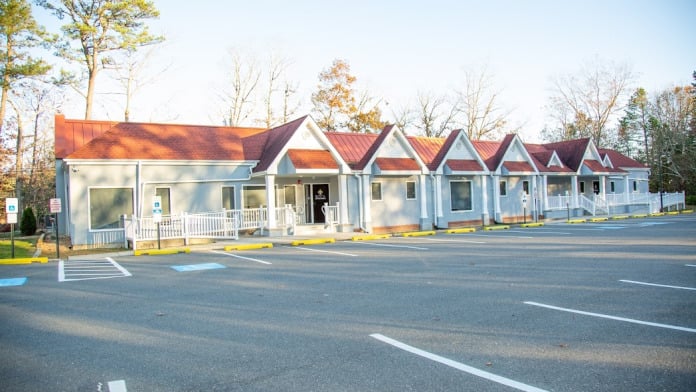About Boca Recovery Center – New Jersey Drug & Alcohol Rehab
Boca Recovery’s New Jersey Drug & Alcohol Rehab, located in Galloway, New Jersey offers residential addiction treatment, medical detox, and medication-assisted treatment in an immersive treatment setting set on the Jersey Shore.
This facility offers 24-hour medical care and medications to assist with detox before transitioning to the New Jersey inpatient program. This program focuses on the root cause of addiction and offers co-occurring disorder treatment for mental health or eating disorders. Treatment consists of individual and group therapy, cognitive behavioral therapy, building new coping skills, trauma-informed therapy, relapse prevention, and dialectical behavior therapy.
This facility accepts most major insurance plans including Amerigroup Real Solutions, Anthem, Aetna, Beacon, Blue Cross/Blue Shield, United, Tricare, Carefirst, and Kaiser Permanente. They also accept Magellan Health and Humana. Be sure to verify coverage directly with your provider to explore out-of-network benefits.
Facility Overview
Latest Reviews
Rehab Score
Gallery
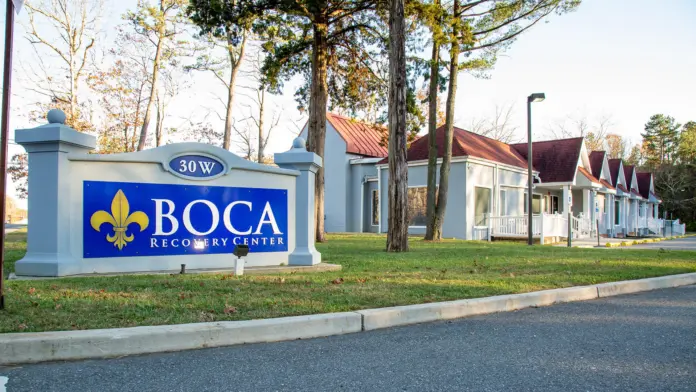
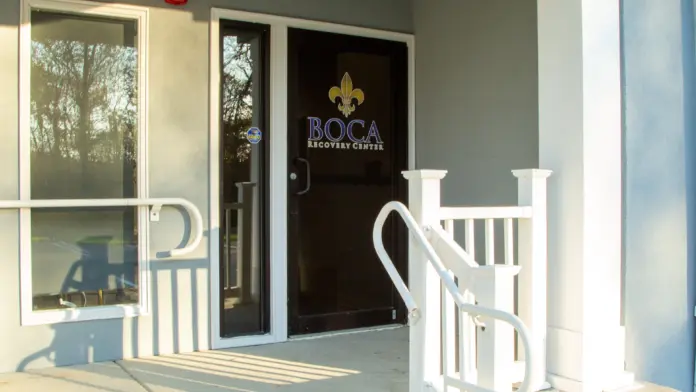
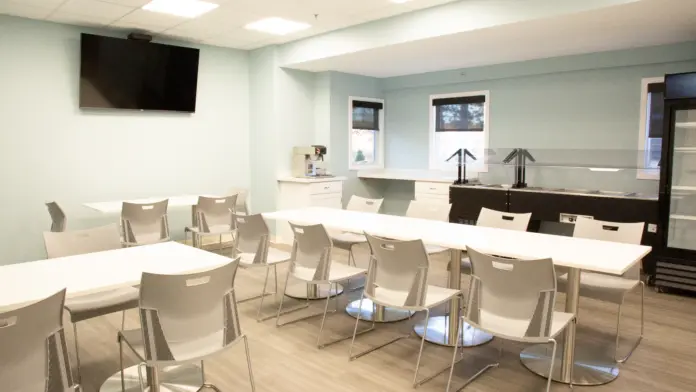
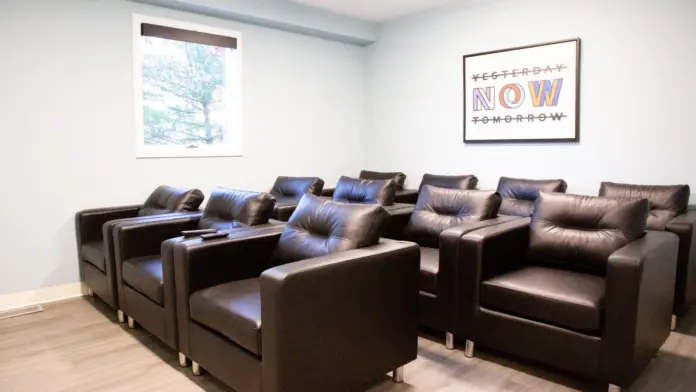
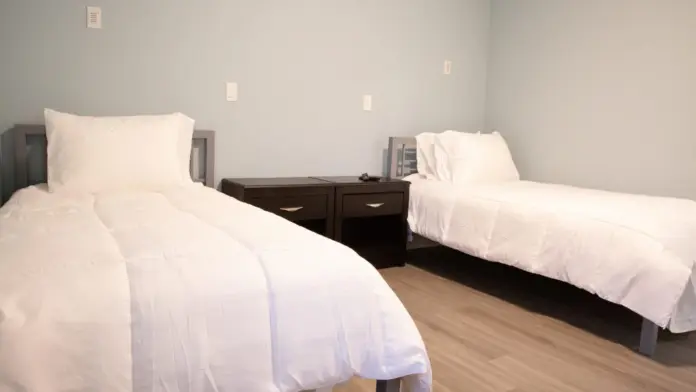
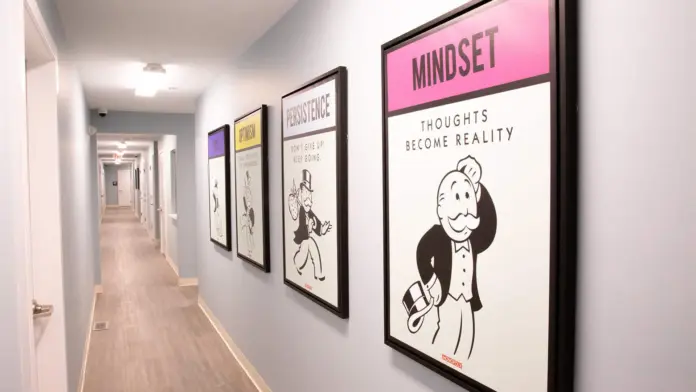
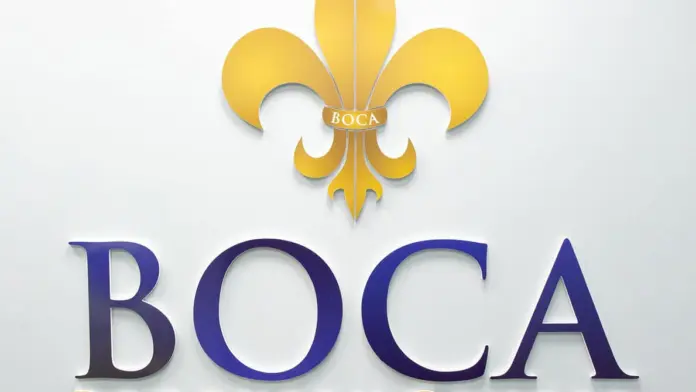
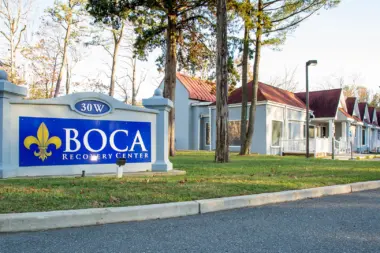
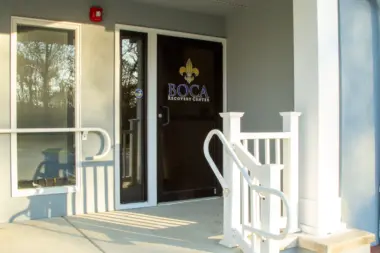
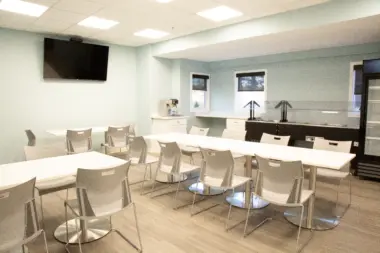
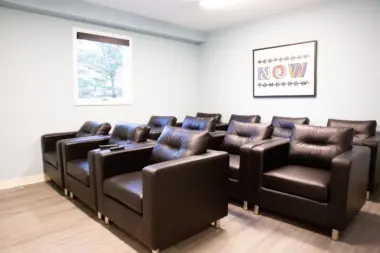
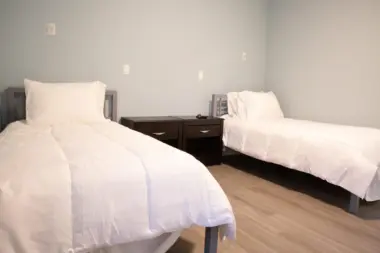
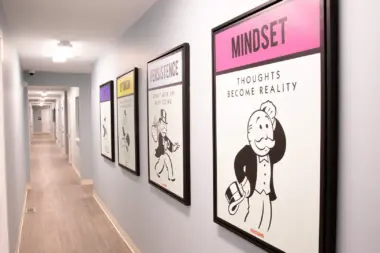
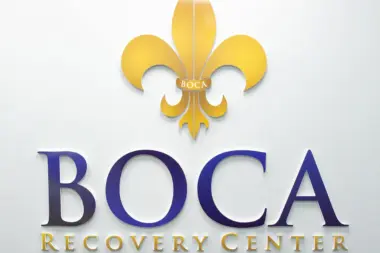
Accepted Insurance
Other Forms of Payment
Private insurance refers to any kind of healthcare coverage that isn't from the state or federal government. This includes individual and family plans offered by an employer or purchased from the Insurance Marketplace. Every plan will have different requirements and out of pocket costs so be sure to get the full details before you start treatment.
Self-pay involves paying for treatment out of your own pocket. You can use savings or credit, get a personal loan, or receive help from family and friends to fund your treatment. If you don't have insurance or your insurance plan doesn't cover a specific program, self-pay can help ensure you still get the care you need.
Military members, veterans, and eligible dependents have access to specific insurance programs that help them get the care they need. TRICARE and VA insurance can help you access low cost or no cost addiction and mental health treatment. Programs that accept military insurance often have targeted treatment focused on the unique challenges military members, veterans, and their families face.
Financial aid can take many forms. Centers may have grants or scholarships available to clients who meet eligibility requirements. Programs that receive SAMHSA grants may have financial aid available for those who need treatment as well. Grants and scholarships can help you pai for treatment without having to repay.
Addiction Treatments
Levels of Care
Outpatient treatment at Boca Galloway helps balance your recovery with daily responsibilities through flexible therapeutic scheduling. We’ll adapt our support to your needs and state of recovery so you'll never be alone. You'll participate in group and individual counseling while maintaining work commitments, build confidence by applying new coping skills immediately to real-world situations and navigate early sobriety with consistent professional help.
Inpatient is a level of treatment that some individuals need and here at Boca Galloway they find the ideal place to get away from drugs and alcohol. Admitting yourself to a recovery facility may feel scary but our positive atmosphere in a luxurious facility helps you focus entirely on transformation and healing. Our nurturing staff provides round-the-clock care to guarantee you're never alone in challenging moments.
Intensive outpatient treatment offers you the flexibility of dedicating nine to 20 weekly hours to your recovery while maintaining your independence. Treatment will adapt to your circumstances and help you develop practical coping strategies and life skills. Our program creates a meaningful bridge between intensive treatment and everyday life responsibilities to give you the strength and resources to lead a new way of life.
Aftercare is our way of aiding your recovery journey through ongoing support. We will celebrate with you milestones that reflect your commitment to sobriety and regularly check in to prevent relapses. You’ll build on foundational skills, use the tools you've learned back home and share experiences with people just like you who understand the path to sustained recovery.
Boca Galloway's 12-step programs help you engage with proven recovery principles in welcoming meetings at our campus. You'll connect with others walking the same path as you share experiences and build accountability. Our approach blends traditional 12-step wisdom with modern therapeutic techniques to create a holistic recovery system that understands your needs and addresses your fears in your sobriety journey.
Sober living homes are transitional bridges between residential treatment and resuming everyday activities. You will find a welcoming, substance free environment from the moment you arrive. You'll practice life skills while surrounded by peers committed to recovery. Daily structure and accountability will help you solidify healthy habits before returning to regular routines.
Intervention services guide families through the challenging process of helping loved ones accept treatment. Boca Galloway’s team members are genuine individuals invested in your loved one’s recovery. We equip families with effective communication strategies and provide support in planning a compassionate intervention that motivates positive change.
The unpredictable nature of early recovery demands an immediate response. At our facility you’ll find experienced professionals ready to help at any hour. We will be there to provide expert support whenever cravings or challenges arise. You will be treated like a human and not just a number so you can feel secure and confident during vulnerable moments.
Recovery begins by detoxing your body from the substances in your system. We will help you detox safely with monitored and respectful withdrawal support. Our clinicians cater to your comfort through evidence-based medications and constant supervision. We will help you take this first step and prepare you physically and mentally for treatment with compassionate care that helps ease anxiety about the process.
Partial hospitalization is a more flexible modality than inpatient programs as you receive intensive treatment while returning home each evening. Recovery becomes your full-time occupation in this level of care. We will provide you with a structured approach, instill life skills and offer individualized and group therapy while remaining connected to your loved ones.
Treatments
Conditions like anxiety, depression and trauma can fuel substance use. In our facilities, you'll be heard and guided by compassionate experts who have walked this journey before you. They’ll show you how to break the cycle of self-medication while building sustainable mental health strategies for long-term happiness.
Substances like cocaine, benzos and fentanyl disrupt brain chemistry. At our center, you'll receive evidence-based treatment to address the underlying causes of addiction in a supportive environment with others who are battling the same fight as you. Through multiple therapies characterized by understanding, you'll develop practical coping skills to embark on a recovery journey that is rarely easy but always possible.
Dozens of individuals whose social drinking escalated and couldn't quit by themselves have started their path to a sober life in our facilities. We can help you detox with medical supervision so your body begins healing. In our structured program, you'll participate in therapeutic groups, receive individual counseling and develop the tools needed for lasting recovery.
Opioid addiction is a threat to millions of Americans' well-being. Nevertheless, there are well-understood treatment alternatives. With our approach, based on personalized care, a dignified setting and genuine understanding, you can access evidence-based treatment, including medication-assisted treatment (MAT), that can help you address the physical and psychological aspects of opioid dependence so you can get your life back.
Mental health and substance abuse challenges may overlap—known as a dual diagnosis—so people need specialized programs to address them simultaneously. With our help, through therapy and group sessions, you'll develop healthy coping mechanisms while addressing the root causes of both conditions. You’ll discover how to stop the cycle of abusing drugs or alcohol to numb underlying mental health issues like depression or anxiety.
You can find comprehensive substance abuse treatment in New Jersey in drug and alcohol rehabs. These treatment programs typically provide a full continuum of care including medically assisted detox, inpatient, outpatient, dual-diagnosis, and intensive outpatient. With a comprehensive substance abuse evaluation, addiction experts provide individualized treatment plans to meet your specific needs. These programs address substance use disorders using evidence-based therapies, like cognitive behavioral therapy (CBT) and dialectical behavioral therapy (DBT), individual and family counseling, and recovery support groups.
Programs
Our adult recovery programs adapt to the real-world demands that individuals battling substance abuse disorders often encounter. In our cheerful, energetic atmosphere, you'll participate in evidence-based treatments that work around your schedule—with inpatient and outpatient modalities—build healthy relationships for a future without drugs or alcohol and finally focus on healing while maintaining your work and family responsibilities.
Young adulthood recovery programs work when they acknowledge the social situations that influence why young people drink or consume drugs. At Boca Galloway individuals in their late teens and early 20s feel understood and heard. We combine evidence-based interventions that address the psychological and physical causes of addiction with deep empathy to help them navigate school, work and love healthily.
Men face specific challenges and concerns when seeking addiction treatment. Gender-specific recovery programs help them tackle these issues head-on in an environment that's focused, targeted, and distraction-free. It also gives them the opportunity to connect with and learn from other men who have been through a similar journey and can offer support for the next step.
Rehabs for women provide a safe, nurturing space for female clients to heal. These treatment programs consider the specific obstacles that women can face during recovery and place a special emphasis on mental, social, physical, and reproductive health. They explore how each woman's experience has shaped the trajectory of their substance use, addressing issues such as sexual abuse and past trauma.
Nearly one million adults age 65 and older live with a substance use disorder. Treatment providers who specialize in senior care understand the social, psychological, and physical effects of aging and how they relate to recovery. They can help clients address particular challenges and risks they may face as they get older such as overdosing and medication interactions and dependencies.
Recovery is most successful when clients feel accepted and validated by their peers and treatment providers. Facilities that offer LGBTQ-inclusive programming are committed to creating a safe space where everyone can grow and recover without fear of judgment or discrimination. They will have dedicated policies in place to create a safe and supportive environment that fosters free expression.
Serving in the military is both mentally and physically challenging, and can result in trauma that persists even after combat ends. Military programs are tailored to the specific and often complex needs of active duty personnel, veterans, and military families. Clients often access these programs through the U.S. Department of Veterans Affairs (VA).
Clinical Services
Cognitive Behavioral Therapy (CBT) is a therapy modality that focuses on the relationship between one's thoughts, feelings, and behaviors. It is used to establish and allow for healthy responses to thoughts and feelings (instead of unhealthy responses, like using drugs or alcohol). CBT has been proven effective for recovering addicts of all kinds, and is used to strengthen a patient's own self-awareness and ability to self-regulate. CBT allows individuals to monitor their own emotional state, become more adept at communicating with others, and manage stress without needing to engage in substance abuse.
Dialectical Behavior Therapy (DBT) is a modified form of Cognitive Behavioral Therapy (CBT), a treatment designed to help people understand and ultimately affect the relationship between their thoughts, feelings, and behaviors. DBT is often used for individuals who struggle with self-harm behaviors, such as self-mutilation (cutting) and suicidal thoughts, urges, or attempts. It has been proven clinically effective for those who struggle with out-of-control emotions and mental health illnesses like Borderline Personality Disorder.
Group therapy is any therapeutic work that happens in a group (not one-on-one). There are a number of different group therapy modalities, including support groups, experiential therapy, psycho-education, and more. Group therapy involves treatment as well as processing interaction between group members.
In individual therapy, a patient meets one-on-one with a trained psychologist or counselor. Therapy is a pivotal part of effective substance abuse treatment, as it often covers root causes of addiction, including challenges faced by the patient in their social, family, and work/school life.
Motivational Interviewing (MI) is a clinical approach to helping people with substance abuse issues and other conditions shift behavior in positive ways. It is more goal-oriented than traditional psychotherapy, as MI counselors directly attempt to get clients to consider making behavioral change (rather than wait for them to come to conclusions themselves). Its primary purpose is to resolve ambivalence and help clients become able to make healthy choices freely.
Trauma therapy addresses traumatic incidents from a client's past that are likely affecting their present-day experience. Trauma is often one of the primary triggers and potential causes of addiction, and can stem from child sexual abuse, domestic violence, having a parent with a mental illness, losing one or both parents at a young age, teenage or adult sexual assault, or any number of other factors. The purpose of trauma therapy is to allow a patient to process trauma and move through and past it, with the help of trained and compassionate mental health professionals.
Most experts in couples therapy are trained in several modes of treatment. This allows your therapist to draw from various techniques to personalize your therapy for your needs. This may include cognitive, emotional, and behavioral methods, which are all designed to help you strengthen your relationship.
Research clearly demonstrates that recovery is far more successful and sustainable when loved ones like family members participate in rehab and substance abuse treatment. Genetic factors may be at play when it comes to drug and alcohol addiction, as well as mental health issues. Family dynamics often play a critical role in addiction triggers, and if properly educated, family members can be a strong source of support when it comes to rehabilitation.
Life skills trainings involve all the skills a person must have in order to function successfully in the world. These include time management, career guidance, money management, and effective communication. Truly successful addiction recovery is based on the ability to not only live substance-free, but to thrive. Life skills teaches the practical necessities of functioning in society, which sets clients up for success in life, and therefore sobriety.
For best results, nicotine replacement therapy (NRT) should be combined with other methods to quit smoking. While NRT addresses physical dependence, other quit program elements are necessary to address emotional and mental dependence. Together, these supports can help you successfully quit tobacco for good.
Nutrition therapy is more than a simple meal plan during rehab. It's designed to facilitate a faster recovery by giving your body the nutrients it needs to heal. It aids in strengthening your systems and giving you the energy you need for daily functioning and success in other therapies.
Amenities
-
Residential Setting
-
Private Rooms
-
Gym
-
Yoga Studio
-
Luxury Accommodations
Staff & Accreditations
Staff

Stephanie Morris
Chief Nursing Officer
Accreditations

LegitScript has reviewed Boca Recovery Center – New Jersey Drug & Alcohol Rehab as part of their certification program, and has determined that it meets the LegitScript standards for legality, safety and transparency.
LegitScript verified in November 2020

State Licenses are permits issued by government agencies that allow rehab organizations to conduct business legally within a certain geographical area. Typically, the kind of program a rehab facility offers, along with its physical location, determines which licenses are required to operate legally.
State License: New Jersey

The Joint Commission, formerly known as JCAHO, is a nonprofit organization that accredits rehab organizations and programs. Founded in 1951, the Joint Commision's mission is to improve the quality of patient care and demonstrating the quality of patient care.
Joint Commission Accreditation: Yes

The Substance Abuse and Mental Health Services Administration (SAMHSA) is a branch of the U.S. Department of Health and Human Services. Established in 1992 by congress, SAMHSA's mission is to reduce the impact of substance abuse and mental illness on American's communities.
SAMHSA Listed: Yes
Contact Information
30 W Jimmie Leeds Rd
Galloway, NJ 08205
